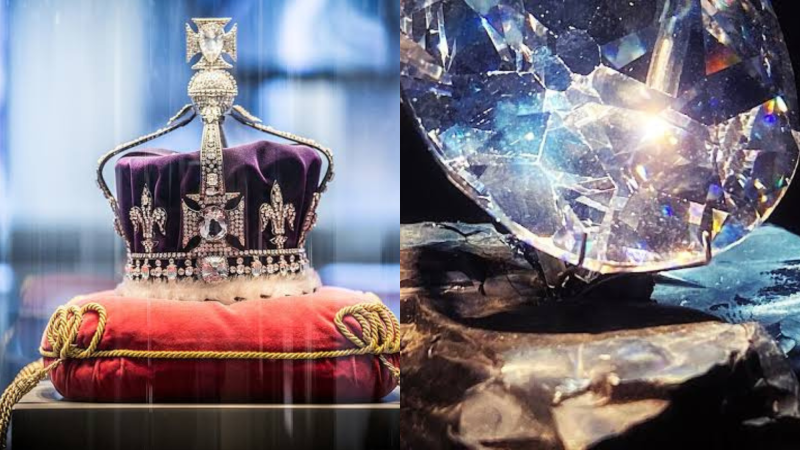CURSE OF THE KOH-I-NOOR

The early history of the Koh-i-Noor is very far from being as clear as the interior of the stone itself. The Koh-i-Noor Diamond is a 186-carat diamond with a curse affecting only men. According to folklore, a Hindu description of the diamond warns that
He, who owns this diamond, will own the world, but will also know all of its misfortunes. Only God or a woman can wear it with impunity.
The Koh-i-Noor diamond is one of the largest and most famous cut diamonds in the world. It was most likely found in southern India between 1100 and 1300. The name of the stone is Persian, meaning ‘Mountain of Light’ and refers to its astounding size - originally 186 carats (today 105.6).
In its long history, the stone has changed hands many times, almost always into the possession of male rulers. Like many large gemstones, the Koh-i-Noor has acquired a reputation for mystery, curses, and bad luck, so much that it is said 'only a female owner will avoid its aura of ill omen'. The stone is claimed by both India and Pakistan, amongst others, but, for the moment, the Koh-i-Noor remains irresistible to its present owners, the British royal family owns it.
Throughout history, the gem traded hands among various Hindu, Mongolian, Persian, Afghan and Sikh rulers, who fought bitter and bloody conflicts to own it. Every prince who had the diamond would ultimately lose his power if not his life. For over 500 years, the stone changed hands in gruesome battles and vicious coups.
The kingdom of Golconda (current day state of Telangana, India), The khilji Empire, The Tughlaq Empire, The Lodhi Empire, The Mughal Empire, The Maratha Empire, The kingdom of Persia, The Durrani Empire, The Afghan Khanate, The Sikh Empire all collapsed one behind the other while owning the Koh-i-Noor Diamond.
The height of the curse can be seen in the fact that even World level Empires crumbled below the weight of the curse. British East India Company owned the Jewel since the Annexation and Disbandment of the Sikh Empire, but only 7–8 years after the looting of the jewel, the revolt of 1857 literally destroyed the east India company from its roots. Brothers set against brothers and sons overthrowing their fathers; the history and lives of the rulers who owned the Koh-i-Noor diamond were filled with violence, murders, mutilations, torture, and treachery.
Whether or not people believe in the Curse of the Kohinoor Diamond, the history of the stone is undeniable - and the threat of the Koh-i-Noor curse is enough to make people cautious.
Historical records indicate the diamond was acquired by the British in 1849 and was given to Queen Victoria in 1850. To heed its legend, the diamond has since only been worn by women, including Queen Alexandra of Denmark, Queen Mary of Teck and the late Queen Elizabeth. The British Royal family were obviously aware of the Curse of the Koh-i-Noor, and from the reign of Queen Victoria, the Kohinoor diamond has always gone to the wife of the male heir to the British throne.
